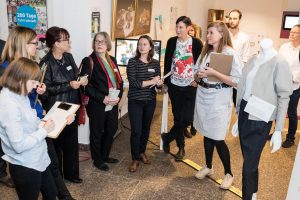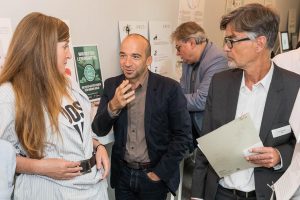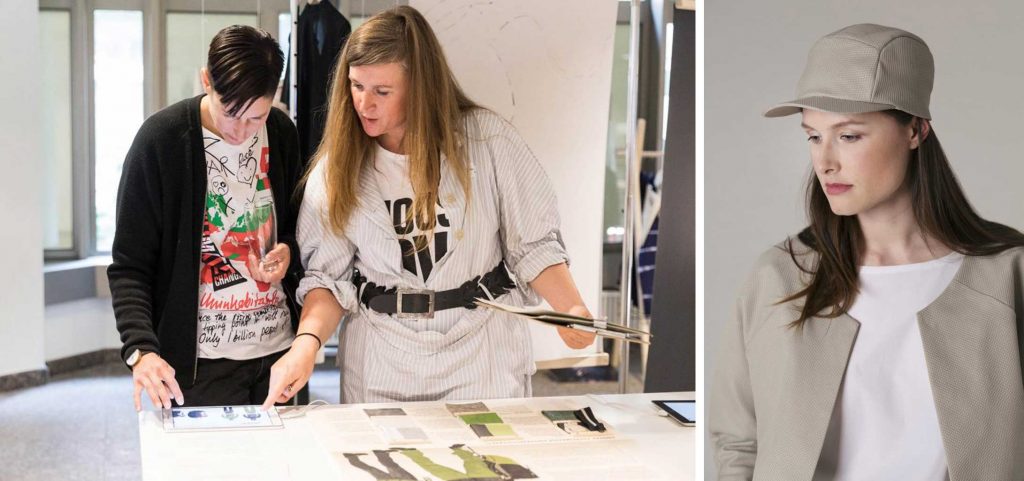11.09.2017 Kunstgewerbemuseum Berlin
How products and services affect the environment is largely determined by their design. The Bundespreis Ecodesign honors sustainable and outstandingly designed products, services and concepts. Out of a total of 324 entries from the fields of architecture, energy, nutrition, household, interior design, mobility and fashion, 129 entries made it to the second round of the competition after a pre-selection process and were presented to the jury for the Federal Prize Ecodesign on September 11, 2017 at the Kunstgewerbemuseum Berlin.
The interdisciplinary jury, of which Friederike von Wedel-Parlow has been a member since 2015, nominated a total of twenty entries, seven of which were honored at the festive awards ceremony on November 27, 2017, at the Federal Ministry of the Environment.
"The applications range from small objects such as simple and beautiful LED spotlights to great visions of building with trees. We need such an abundance of ideas to make our production and consumption habits more environmentally friendly".
Federal Minister of the Environment, Barbara Hendricks
Category Young Talents
The Federal Prize Ecodesign Young Talents 2017 was awarded to a project on recyclable fashion. The category Young Talents brings together projects from all design sectors and offers a look at innovative, forward-looking projects. The prizes for young designers are endowed with one thousand euros each.
The fashion collection "DfC x JNJ" from Ina Budde convinces not only through the consistent, design-oriented circularity approach, but also through intelligent communication solutions and the underlying EXTENDED CLOSED LOOP model. The goal is better networking within the fashion industry and the expansion of return structures and offers for multiple use. Each garment in the collection is provided with a scannable label that, among other things, makes the material composition visible to customers and recycling companies and provides information about leasing and return options.
"Sustainability is not only intelligently solved here on the level of materiality - for example with the innovative, biodegradable products of the Lauffenmühle company - but the fashion system itself is considered as a whole: QR codes on the labels ensure transparency and traceability, second uses as second-hand or leasing models are propagated. This approach is to be applied as a start-up design agency with JAN ‘N JUNE or other young labels."
Prof. Friederike von Wedel-Parlow




